#LeBaron
Junkyard Find: 1978 Chrysler LeBaron Coupe
The LeBaron name goes well back in Chrysler history, starting when the coachbuilder known as LeBaron Carrossiers was purchased by Detroit car-body-builder Briggs Manufacturing in 1926 and Chrysler bought Briggs in 1953. After various high-end Imperials got LeBaron branding over the decades, Chrysler decided to turn the Dodge Diplomat into a swanky luxury machine and revive the storied LeBaron name in the process. Here's one of those cars, found in a Denver boneyard recently.
Rare Rides: The 1990 Chrysler LeBaron GTC Turbo Convertible, Variable Driving Excitement (Part II)
In our last installment of the Chrysler LeBaron story, we covered the model’s inception via a coachbuilder in Detroit, and its development from a trim into its own model line.
Today we cover LeBaron’s last stand.
Rare Rides: The 1990 Chrysler LeBaron GTC Turbo Convertible, Variable Driving Excitement (Part I)
Today’s Rare Ride is one of the rarest versions of Chrysler’s third-generation LeBaron, in its run up to the final days and the conclusion of the very long-lived K-car platform. Sporty, turbocharged, and done up in black, the LeBaron had a long and winding road to get to its terminus.
Let’s talk about that history a bit.
Rare Rides: Be a Real Businessman With the 1983 Chrysler Executive Sedan
The demand for executive limousines in North America was once satisfied by OEM-lengthened versions of domestic sedans. The Detroit Three built them in-house, or sent regular cars to a domestic coach builder. The lengthened cars were then sold via the regular dealership network. The desired buyer was a wealthy customer who’d have a driver for their daily conveyance. By the Eighties, the limousine market shifted in favor of coming with length: Stretch limousines were in demand. Independent companies built super-extended wheelbase cars for livery-type needs. The factory limousine car market faded away as business magnates chose standard sedans, or long-wheelbase offerings that were not limousines.
But there were one or two holdouts in the factory limousine marketplace, and today’s Rare Ride is one such car. It’s the Chrysler Executive from 1983.
Junkyard Find: 1982 Dodge 400 Landau Coupe
Lee Iacocca’s original Chrysler K Platform spawned an incomprehensible tangle of K-related offspring between the 1981 and 1995 model years, but only a few U.S.-market models were true K-Cars: the Chrysler LeBaron, Plymouth Reliant, Dodge Aries, Dodge 600, and Dodge 400.
Of these, the 400 has been the hardest for me to find in the self-service wrecking yards I frequent; in fact, this is the first junkyard Dodge 400 I’ve photographed.
Junkyard Find: 1982 Chrysler LeBaron Convertible
Junkyard Find: 1985 Chrysler LeBaron Woody Convertible
While Chrysler made a bewildering array of vehicles based on the staving-off-bankruptcy K Platform, only four models could be called pure K-cars: the Dodge Aries, Plymouth Reliant, Dodge 400, and Chrysler LeBaron. All the rest, from the Town & Country minivan to the Imperial, were based on mutated K hardware.
Here’s an example of a fully luxed-up LeBaron convertible, featuring body trim made from the stately trees of the Magical Petrochemical Forest, spotted in a Phoenix self-service wrecking yard.
Here Are All the Ways Chrysler Tried To Turbocharge the 1980s
It was impossible to escape the word “Turbo” in the 1980s.
There were Turbo Aviators and Turbo Hoover vacuums. Turbo was a character on American Gladiators. There was even Turbo chewing gum, which came with a cool mini car poster wrapper. Turbo was a helluva drug in the 1980s, and Chrysler took note.
BMW offered one turbocharged gasoline model. Porsche offered three. But Chrysler? Over a 10 year span, the Pentastar turbocharged its entire car lineup, bringing us some 20 turbocharged models powered by no less than six different variations of the 2.2- and 2.5-liter inline-fours.
Nothing Arrives in Style Like a Dual Cowl Phaeton
1929 Duesenberg Model J by LeBaron
As part of this gig, I see a lot of cars. Besides attending the major corporate auto shows like the North American International Auto Show here in Detroit, from spring into late fall almost every Sunday will find me at some kind of car show. Car museums are also some of my favorite places. Having entered my teens during the 1960s, when there were E Type Jaguars, Corvettes and Mustangs, it was easy for me to dismiss cars from the ’50s as old-fashioned, let alone vehicles from the pre-war classic era. As Mark Twain pointed out, though, I’ve learned a few things since I was a young man and my perspective has changed.
Monday Mileage Midget: A Spring Chicken, And Two Old Cluckers
A 2012 VW Jetta TDI Wagon.
It comes with the usual six speed stick that you would find among thousands of other Jetta wagons all over the world.
It has the ‘arrest me red’ color that always comes across as neon pink whenever you photograph it in the sun.
But there are at least two mysterious facets of this urea indulgent uber-wagon. A rare and unusual frame damage announcement in the run list, and only 815 original miles.
Review: 2012 Chrysler 200 S Convertible
So you want your next car to be a cheap drop top that seats four? If you live in America, your options are strangely limited. By my count, only five convertibles are available on our shores that seat four and cost under $30,000. If you cross the “convertible hatchbacks” (Cooper and 500c) off the list you’re left with three options. The Mitsubishi Eclipse Spyder, Ford Mustang and the former king of the convertible sales chart: the Chrysler Sebring 200. Does this re-skinned front driver have what it takes to win back the “best-selling convertible in America” crown?
Junkyard Find: 1991 and 1993 Chrysler LeBaron Convertibles
One of the worst things about the Malaise Era (other than the ascendance of Captain and Tennile) was the lack of cars with convertible tops during the period. The last convertible Cadillac Eldorado rolled off the assembly line in 1976, but the decline of the convertible had started a few years earlier. The top-down drought held until the last of the Malaise years, when machines such as Rabbit Cabriolets and LeBaron convertibles became available. Chrysler kept making the K-based LeBaron convertible until 1995, but you don’t see many of them these days. Here’s a pair of early-90s examples I found side-by-side in a Denver wrecking yard.
Junkyard Find: 1979 Chrysler LeBaron
By early 1979, Chrysler was really circling the drain. Lee Iacocca was in, the “too big to fail” government bailout loan wasn’t a sure thing, rebadged Simcas and Mitsubishis weren’t luring many subcompact shoppers into showrooms, and the front-wheel-drive K platform was still a couple of years from showrooms. Let’s follow up yesterday’s Chrysler Malaise Era Death Spiral Junkyard Find with the quasi-luxury car Chrysler hoped would help the company stagger, zombie-like, into the 1980s.
Adventures In Used Car Sales, Recession Edition: Get In Here!
Way back in 2008, I created the Nice Price or Crack Pipe? series for Jalopnik, kicking things off with— of course— a $12,500 Chrysler TC By Maserati. NCOCP was a way for me to do something with car ads that didn’t quite work for my Project Car Hell series, and it has remained a Jalopnik readership favorite since I passed the NPOCP torch to the very capable hands of Graverobber aka Robert Emslie. These days, however, I sometimes see cars for sale that make me wonder… hubba rocks required or real-world price? While in Wisconsin last week, I saw this fairly solid ’91 Lebaron convertible in a laundromat parking lot with this very compelling self-service invitation. How much?
Junkyard Find: 1981 Chrysler LeBaron
Chrysler has used the LeBaron name on and off since the 1930s, and the prestige level of the LeBaron badge has been on a gradual downward spiral all along. Some may disagree with that assessment, however, depending on whether they judge the transition from the M (Dodge Diplomat) platform to the K platform in 1982 to have been a step up or a step down. I think the presence of a Slant Six under the hood disqualifies any vehicle from claiming luxury status, and that’s what we’ve got here.



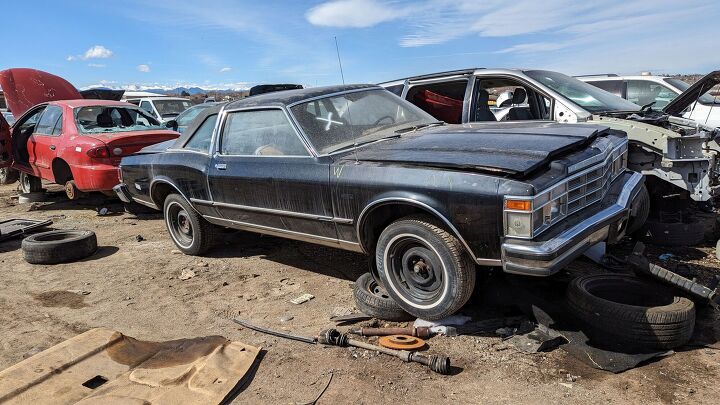
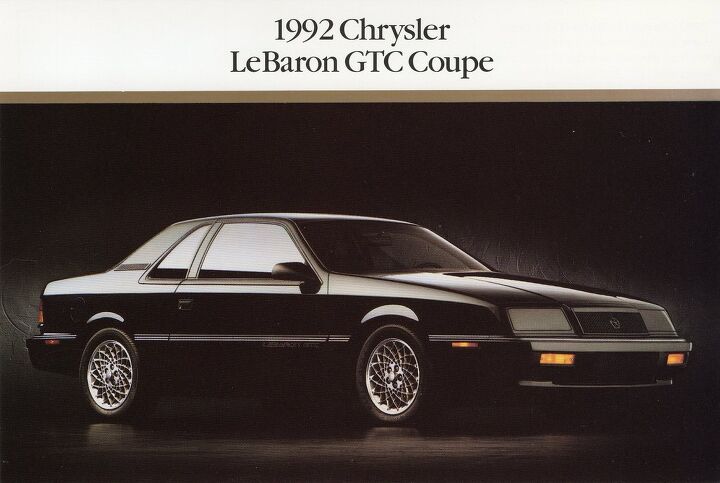

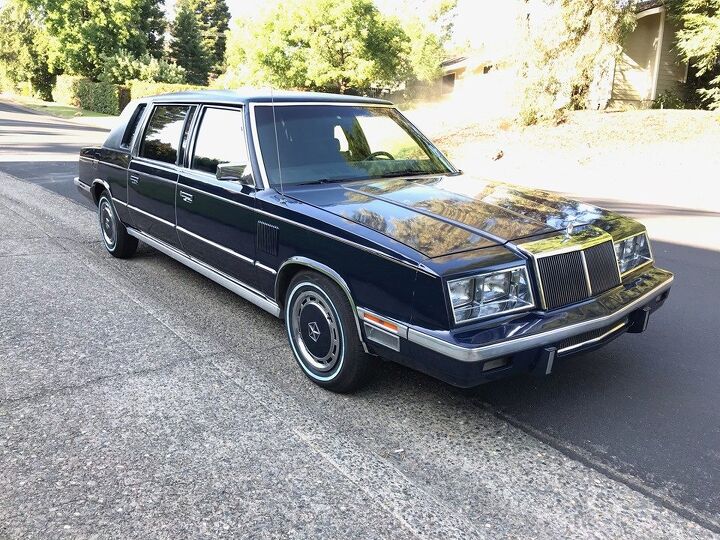
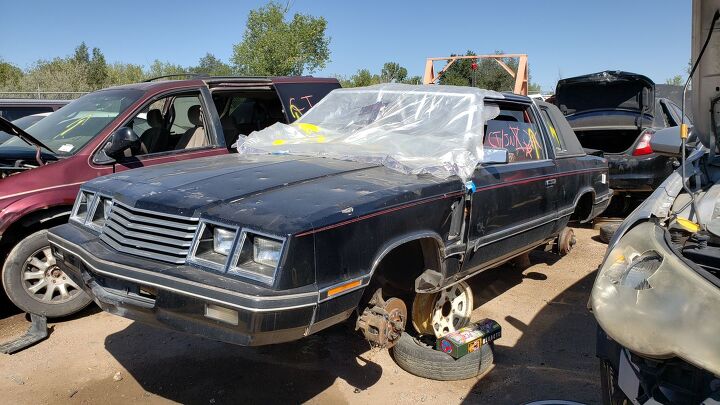
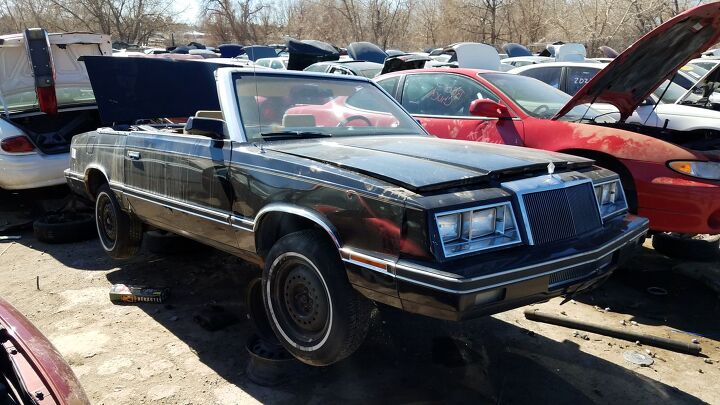

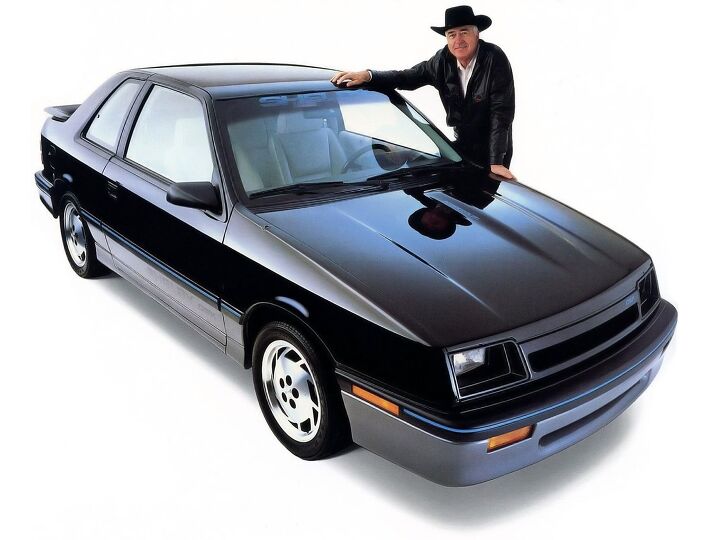
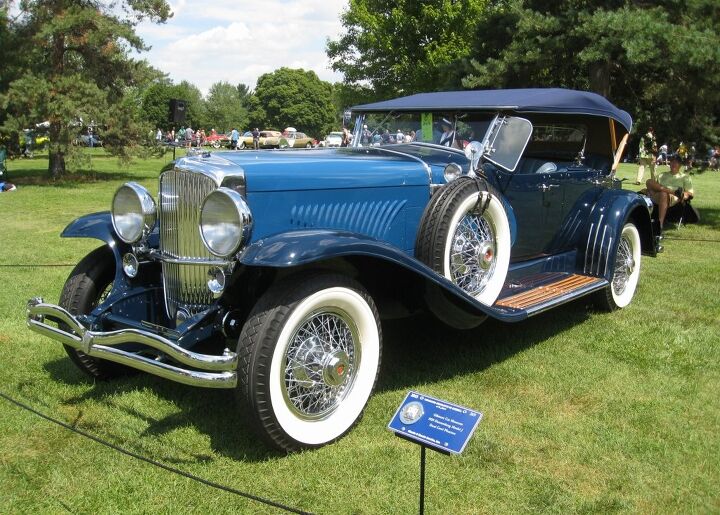
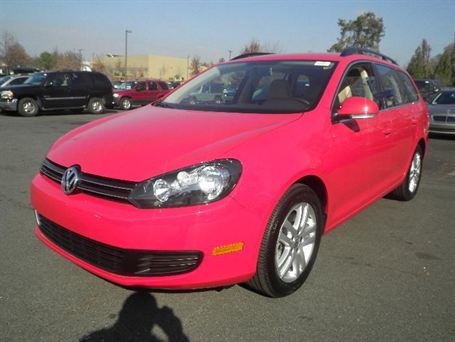
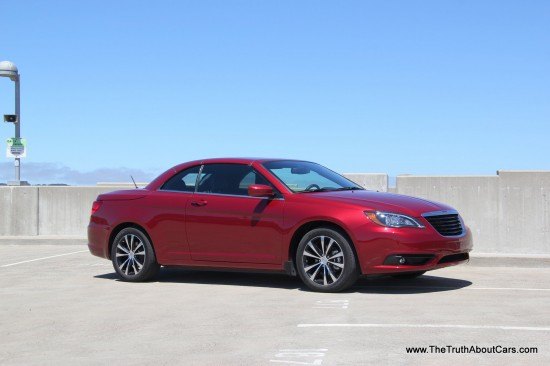
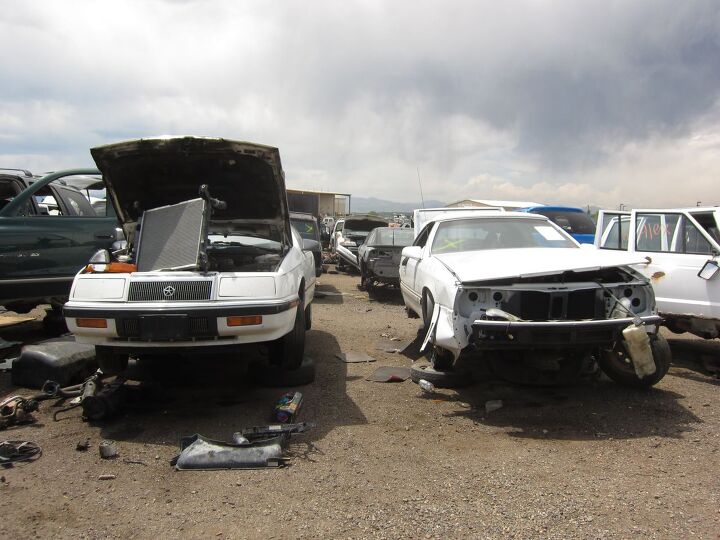
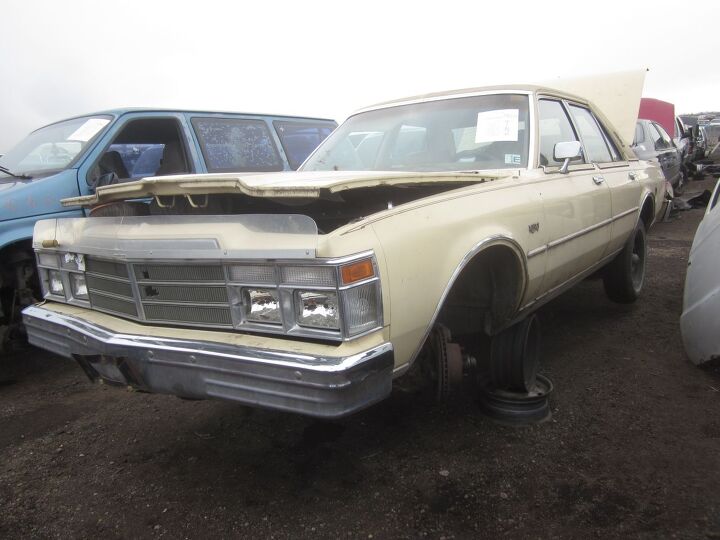

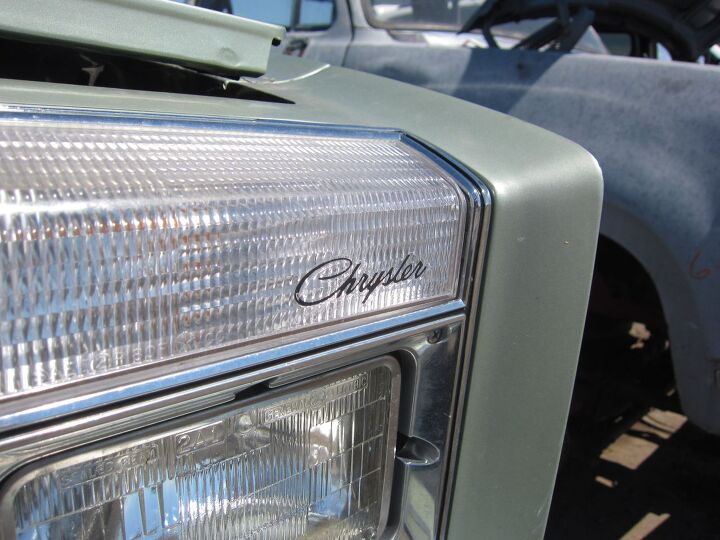












Recent Comments